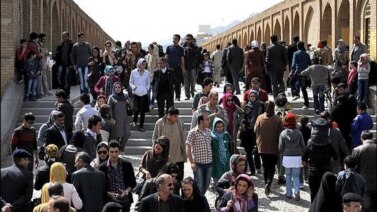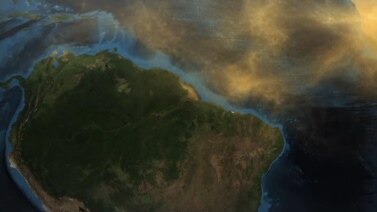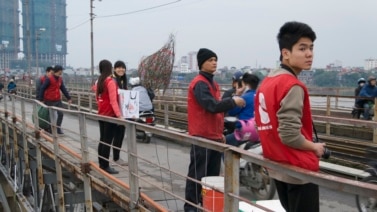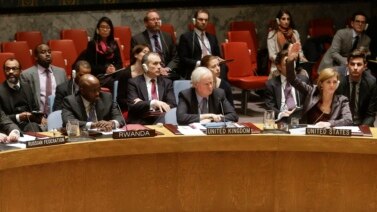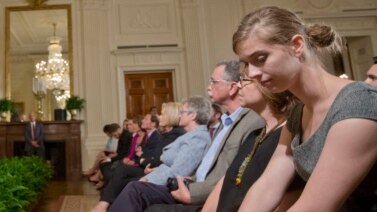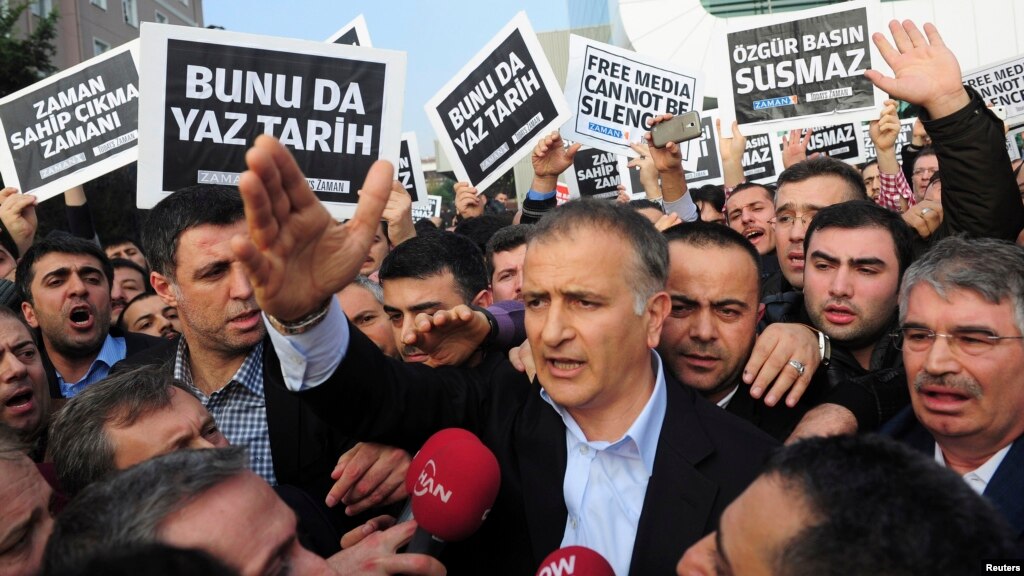
The Turkish government recently ordered raids on media with ties to its opponents. Now the government is rejecting criticism at home and from overseas for the actions.
Turkish officials say recent arrests of more than 20 journalists were made in connection with a plot against the government. But the European Union says Turkey is increasingly becoming more authoritarian. It said the media raids were in conflict with European values.
Protesters gathered earlier this week outside the police headquarters in Istanbul. They carried signs condemning police raids on the Zaman newspaper and the Samanyolu television station. Turkish police arrested top reporters and editors.
The European Union said the raids were “incompatible with the freedom of media.” Individual nations also expressed dismay at the Turkish actions. German Foreign Minister Frank-Walter Steinmeier said the actions are, in his words, “more than just worrying.” An American State Department official said media freedom, the process of law and judicial independence are important elements in every healthy democracy. She said the United States is watching events closely.
But on television, Turkish President Recep Tayyip Erdogan reacted angrily to the criticism. He said the 28-nation EU should “mind its own business.” He also said Turkey does not care what European officials thinks of its decisions.
EU Foreign Policy Chief Federica Mogherini said Mr. Erdogan’s reaction surprised her. She said her discussions with him last week appeared to be constructive. The goal of the talks was to give new energy to Turkey’s longtime request to join the EU.
Semih Idiz writes about diplomacy for Turkey’s Taraf newspaper and the Al Monitor Website. He says the president’s reaction shows the limited influence the EU now has over Turkey.
“The rather reluctant position that some countries have had over the past 10 years towards Turkey’s membership, with some just openly blocking its path, I think that has led to this notion no matter what Turkey does, its bid will never move anywhere else.”
Mr. Erdogan blames followers of Islamic clergyman Fethullah Gulen for investigations launched last December. He says these followers work within the Turkish judiciary and police force. The investigations linked members of the Erdogan family and government ministers to corrupt activities.
Last year, Turkey was criticized for using excessive force to break up huge anti-government protests. In recent months, suspected opponents in the police force have been targeted. But the government action on Sunday represents the first major operation against opposition media.
Mustafa Yesil is chairman of the Journalists and Writers Foundation. He noted that many millions of people were expressing themselves through these media. He said they are the only anti-government media outlets.
Critics say Turkey has had a poor record on media freedoms for a long time. A spokesman for the group Reporters without Borders said Turkey occupies 154th place out of 180 worldwide for press freedom.
I’m Bob Doughty.
Reporters Dorian Jones and Zlatica Hoke provided material for this story. Jeri Watson wrote the story for VOA Learning English. George Grow was the editor.
Words in This Story
authoritarian - adj. expecting or requiring people to obey rules or laws; not allowing personal freeman
dismay - n. a strong feeling of being worried, disappointed or upset; helpful to someone instead of upsetting or negative
constructive – adj. helping to develop or improve something;
excessive - adj. going beyond what is usual, normal or proper
Now it’s your turn to use these Words in this Story. In the comments section, write a sentence using one of these words and we will provide feedback on your use of vocabulary and grammar.
